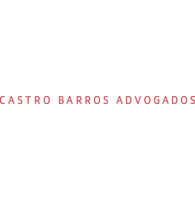
Brazil Teams 2019

| A. P. Moller Maersk Group




A. P. Moller Maersk Group
After the Hamburg Sud Group acquisition, the company’s legal departments across South America were merged into one centrally controlled team with regional segments. In Sao Paulo, the team is led by Hugo Cruz Maestri, who is the legal affairs director for all group companies in ECSA including a team in Argentina. Paulo Roberto Vogel de Rezende, manages the group companies in ECSA dedicated to the shipping activities. Vanessa Pinto, a labour specialist, is responsible for the labour cases and respective consults. Henrique Souza, a contracts specialist who plays an important role in the contracts and regulatory division, works together with Leticia Vianna, a lawyer also dedicated to this area. The team also includes Eduardo Dalcum, a civil specialist responsible for the civil, maritime and competition cases and Karina Ikeda, a lawyer dedicated to the corporate issues and tax issues, especially the ones related to customs. In Itajaí, the team is led by Jackeline Daros Abreu de Oliveira, who manages the group companies in Brazil dedicated to terminals, logistics and services, and has in her team consisting of Simone Moro Tapias, a labour specialist responsible for the labour cases and respective consults; Anderson Cunha, a lawyer responsible for civil, customs and public law (administrative and regulatory); Thayse Maria Holtin Marins, a lawyer responsible for corporate law, claims and insurance and contracts and Milena Farias Seben, legal assistant.
Very often, having only technical legal skill is not enough to solve the daily problems and this situation demands that the in-house lawyer applies other characteristics to have a successful team. As individuals, all of us have a set of personal characteristics that determine who we are and are resulted from personal experiences, whether in private or social life. This set of social skills is essential to professional performance. The “soft skills” of the team members have been of great importance for the team to succeed on its challenges. Soft skills are fundamental for an in-house lawyer considering the role it plays in the business, principally to understand the client’s needs and address the best answers and solutions.
In this sense, business orientation, listening,
creativity and flexibility to adapt to changes or circumstances that may interfere with work are important tools. Empathy also helps greatly in
this process. In the legal area, communication is also an essential tool. To do this, the team member needs to be skilled at communicating and doing it effectively, both listening and communicating as clearly as possible. Finally, but certainly not less important, integrity is another highly appreciated soft skill, as in-house lawyers have the duty to identify legal risks that can jeopardise our group,
but also have the mission of keeping the business always compliant.
Yes, diversity and inclusion is a matter of internal policy on the agenda at the company. A.P. Moller Maersk strongly supports diversity, as we believe that all employees are essential to the company, no matter their religion, sexual orientation, social and cultural origin. There are two amazing projects that can be highlighted: the “To be Special”, which works on inclusion and education with the hiring of autistic and disabled people and the “Mix Group ECSA” that supports and promotes diversity and inclusion within our organisation and society, also performing lectures and events regarding gender diversity. The legal department, of course, is on board in regards to such value and all legal questions that can come across this subject matter receive a careful analysis from our lawyers based on internal policies and local laws. Besides, as part of a whole structure, we are responsible for the good interaction of the disabled people who work with us, taking part into this inclusion by treating them with respect, teaching them and being taught by them on a daily basis. The in-house legal team collaborates to create and organise internal policies and acts as members in the activities developed by the company on these topics.
Regrettably, Brazil, and South America, in general
is famous for being a place of legal uncertainty. It is not hard to find examples about this, even though we are talking about recent history. When it comes to the maritime and port segment the same situation takes place and suddenly, an activity which was a common practice in the market for shipping companies, customers and port terminals can be considered irregular or even illegal, creating an unexpected financial impact before the economic agents of some markets. The current political changes, both in the national (Brazil) and the regional (Mercosur) levels, are still on an undefined status quo. Besides, the recent Mercosur/European Union trade agreement might have a huge impact in terms of multimodal transportation, as much as the possibility of a new approach with the US and the development of more proximity with China. Regarding economic changes, the revitalization of the economic growth in Brazil is still a big challenge faced by the industry. The constant growth in sabotage services in Brazil, including after the period of the truckers strike back in 2018, is impacting directly on legal services, especially the negotiation and drafting of contracts.
There are also recent regulatory changes related to the concept of the terminal handling cost (THC), THC2 and related services which impact directly on the services provided by the companies of the group. In general terms, ANTAQ (Brazilian Agency of Waterway Transportation) understand that any amount shipping companies charge customers, that exceeds the amount that port operators charge shipping companies (box rate) for the performance of such terminal services is considered illegal. Furthermore, the industry is still suffering the impact from the Antaq Resolution no 18, which established a new regulatory dynamic between the clients and the shipping companies.